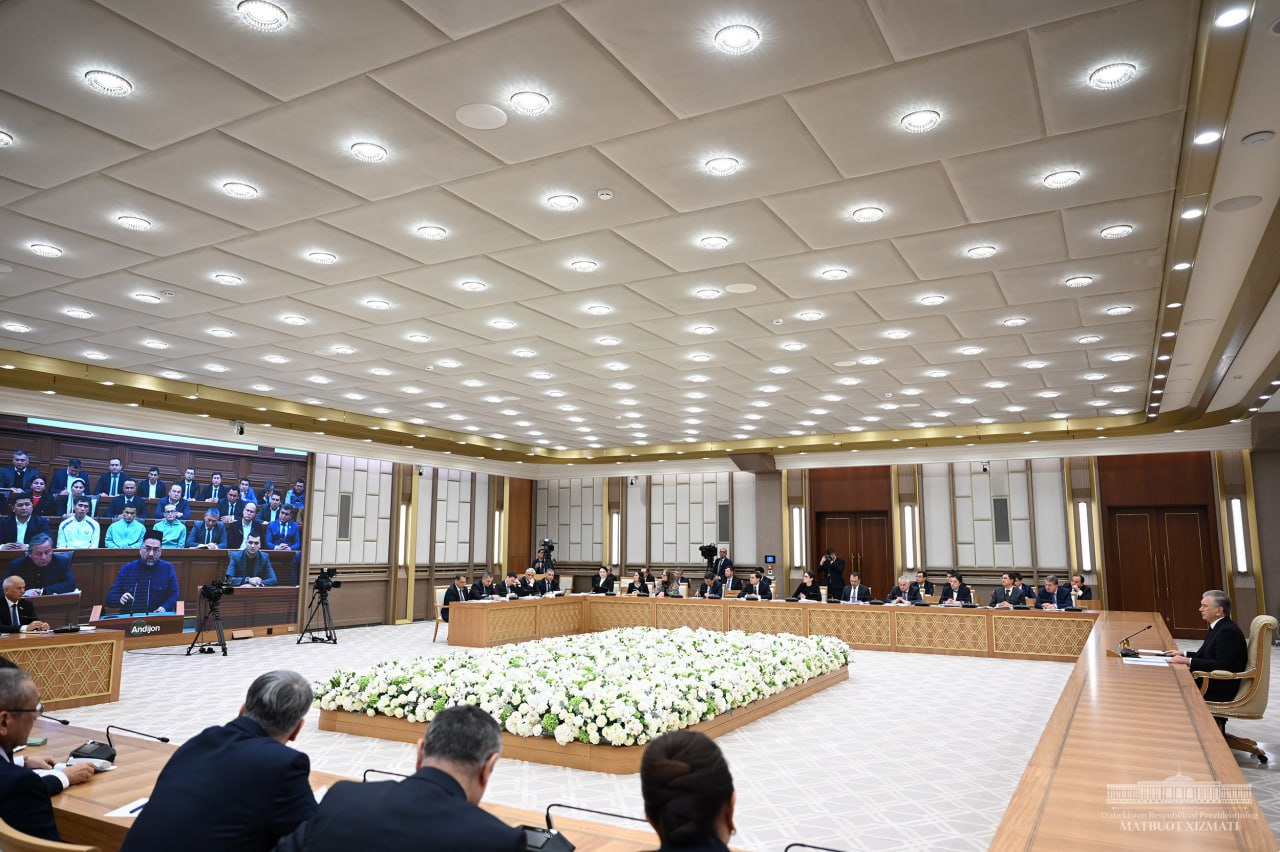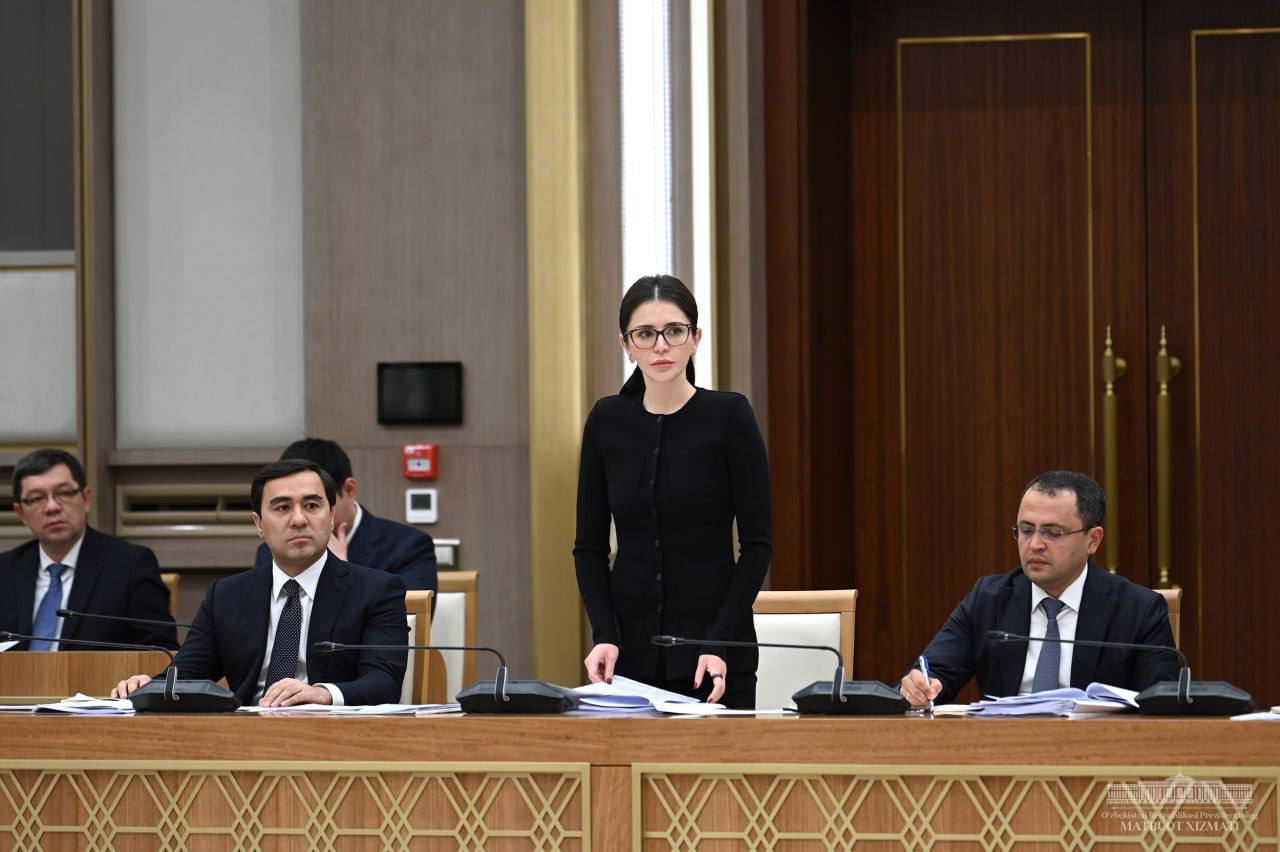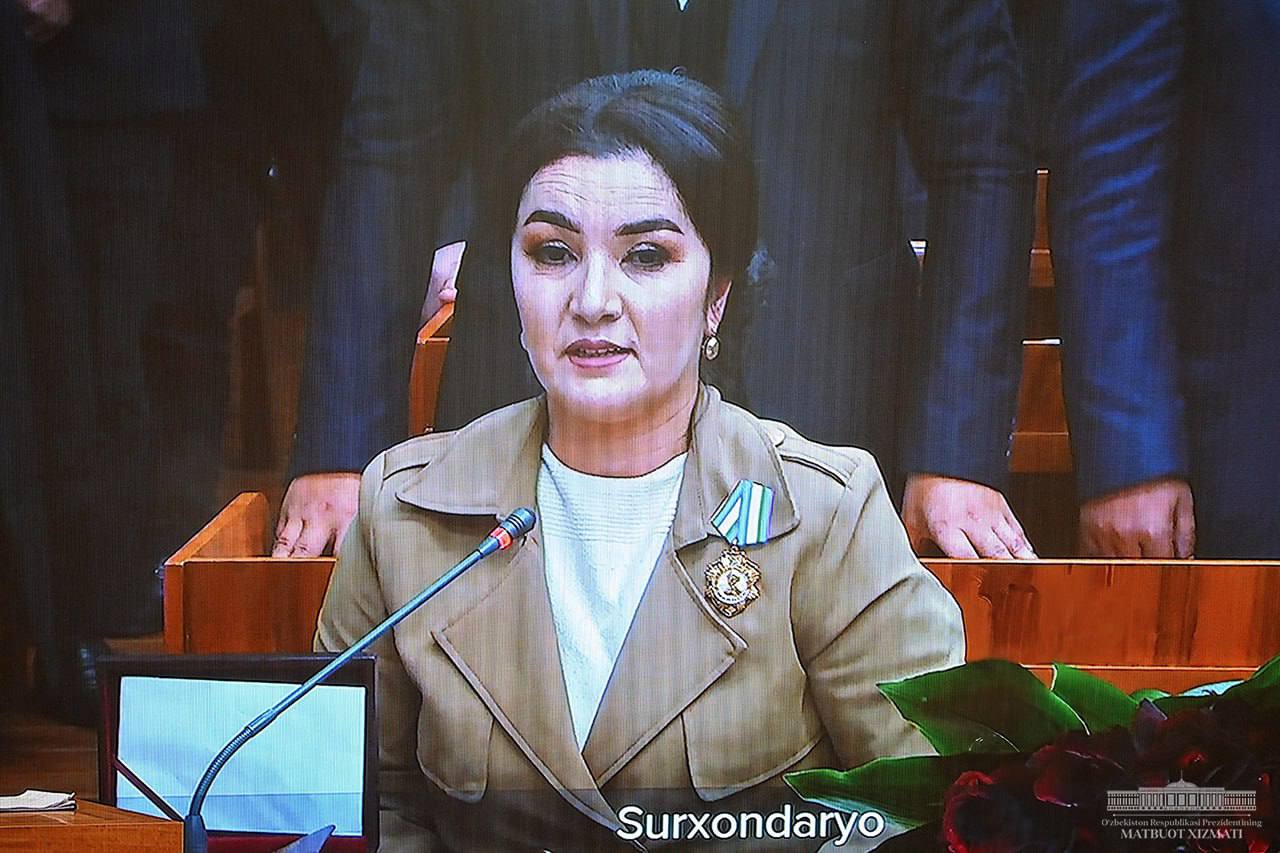President Shavkat Mirziyoyev introduced new initiatives aimed at strengthening the social protection system.
It was noted that due to targeted efforts, the number of appeals to public reception offices and hokimiats regarding social services and assistance has decreased by 35 percent. Three months ago, 14,000 leaders at the regional and district levels were assigned to work individually with 75,000 low-income families. As a result, 17,000 individuals from these families were employed in permanent jobs, and the incomes of 14,000 people increased through entrepreneurship and personal subsidiary farming. Additionally, 30,000 children have been enrolled in kindergartens, clubs, and vocational training, while medical assistance was provided to 45,000 needy individuals.
However, in some areas, the work has not been organized efficiently enough. For instance, 184 leaders have never visited the homes of the low-income families assigned to them. The employment rate for people with disabilities nationwide has reached 20 percent, but in the Jalakuduk, Chimbai, Pastdargom, Chartak, and Denau districts, this figure is significantly lower. Out of 598 social facilities included in the investment program for the next year, none have been adapted for people with disabilities.
During the meeting, the shortcomings were reviewed, and further measures were discussed. The President introduced new initiatives to strengthen the social protection system.

It was emphasized that to lift 1.2 million people out of poverty next year, issues related to education, vocational training, healthcare, and improving living conditions must be addressed.
There are successful examples to follow. For instance, Early Development Centers have been established in the Taylak and Kasansay districts, where 4,200 children from low-income families and children with disabilities received preschool education. The regional hokims have been tasked with studying this experience and implementing it in every district.
Furthermore, next year, family kindergartens will begin operating in a thousand mahallas with high poverty levels. Starting from the new year, 15 percent of the places in these kindergartens will be allocated for children from low-income families, and part of the fees will be subsidized by the government.
Additional opportunities will be created for the education of children from low-income families. 118,000 young people will receive training in foreign languages, IT, and vocational skills. Up to 80 percent of parents' expenses for these programs will be subsidized from the budget. By 2025, 3,500 such children will enroll in universities on a grant basis.
For 23,000 individuals from low-income families who cannot move independently, care is provided by parents, spouses, or children. Starting January 2025, home care will be organized for 19,000 of them, and daytime supervision will be provided for 4,000. This will allow 15,000 individuals who previously cared for them to engage in work activities. The state will compensate 80 percent of the costs to the private sector providing care services. This initiative will first be implemented in Tashkent and will be extended to all regions by the end of the year.

460,000 individuals from low-income families are in need of medical assistance, while 6,000 families require improved housing conditions. Next year, an additional 185 billion sums will be allocated to the medical insurance fund for paying for surgeries for those in need. Funds from the "social notebooks" will be used exclusively to improve the housing conditions of low-income families and increase their incomes.
Currently, to receive social services and assistance, citizens are required to provide more than 10 different documents. Now, all of these will be replaced by a single social card. With this card, individuals will be able to use public transport for free, receive compensation for electricity, gas, and education expenses. Benefits and social assistance will also be credited to this card. The system will be tested in Tashkent and the Yangiyul district by July 1, after which it will be implemented nationwide.
The meeting also discussed issues related to supporting individuals with disabilities. The rehabilitation rate in 33 districts has proven to be extremely low. It was instructed to organize rehabilitation services in every regional and district hospital. Funding for occupational therapy, physiotherapy, and therapeutic exercise services in 12 rehabilitation centers will be increased fivefold. Rehabilitation departments will be opened in seven medical universities, and teachers will undergo retraining based on the experience of Korea.
Some types of disabilities can be treated through exercises performed at home. A program of exercises and a healthy eating menu will be developed for such patients. The effectiveness of rehabilitation will be assessed based on changes in the mobility and communication of patients, and based on this, doctors will receive salary supplements.
Currently, the list of prosthetics and rehabilitation tools has been expanded from 18 to 30 items, and their funding has increased by 1.5 times. In 2025, an additional 7 types of aids are planned to be added to the list, meeting the needs of 80,000 people.

Thanks to the opportunities created this year, entrepreneurs have employed 40,000 individuals with disabilities. Starting in January, the social tax rate for such enterprises will be set at 1 percent. Additionally, companies will be granted subsidies of up to 50 million sums for the services of sign language interpreters, psychologists, and companions for visually impaired employees. Private employment agencies that train and employ people with disabilities will be eligible for grants of up to 500 million sums.
During the meeting, other issues related to the implementation of the planned measures were discussed, and suggestions from social sector specialists were heard.